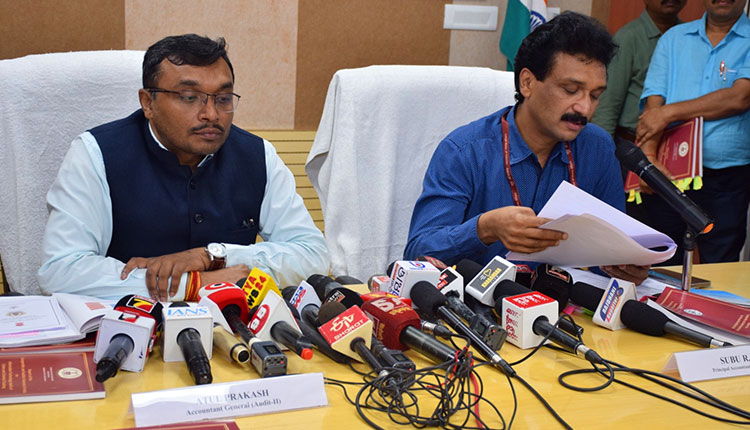Bhubaneswar: The Comptroller and Auditor General of India (CAG) has highlighted significant deficiencies in the implementation of the e-Procurement System in Odisha, raising concerns about transparency and integrity in the state’s tendering and contracting processes.
The findings, part of the CAG’s Information Technology Audit of e-Procurement System in Government of Odisha
for the year ended March 2022, were tabled in the Odisha Assembly on Wednesday by Chief Minister Mohan Charan Majhi.
The audit revealed that although Odisha adopted online tendering in 2008 using the Government e-Procurement System developed by the National Informatics Centre (GePNIC), the state never signed a service level agreement with NIC. As a result, several critical modules—including vendor management, indent management, contract management, and catalogue management—were never implemented.
Serious control gaps were detected. In multiple cases, the names of bidders did not match those on their digital signature certificates (DSCs), and the same DSC was mapped to several bidders. Similarly, in over 25,000 cases, identical PAN numbers were linked to multiple bidders, allowing some to submit multiple bids in the same tender.
Audit also found that in 168 out of 486 tenders, bidders were given fewer days than prescribed to submit their bids. Business rules requiring a two-cover process for tenders above ₹50 lakh were not enforced, permitting single-cover submissions even in high-value cases.
The report pointed to instances of serious time-stamping errors: bids recorded before tender sale start dates, bid updates appearing earlier than bid creation, and over 6.26 lakh bids uploaded before their creation time, undermining data integrity. In 228 cases, bids were submitted after the official closing time, apparently due to weak system controls or back-end interventions.
Another area of concern was bid decryption. In 342 bids linked to 120 tenders, records showed they were not decrypted at all, yet in five of these cases, contracts were awarded. This discrepancy, the CAG said, created a material risk of back-end manipulation.
Despite being an e-governance initiative, key processes like tender evaluation, vendor negotiation, and contract awards continue to be handled manually. The audit even found cases where authorities increased bid amounts after downloading them from the portal, excluding the lowest bidder during contract awards.
The report also flagged missing user login logs in the system, suggesting possible manual deletion or modification of records at the back end—raising doubts about the overall integrity of Odisha’s e-Procurement database.
The CAG concluded that Odisha’s e-Procurement system has failed to achieve its fundamental objective of reducing human interference and ensuring transparent, tamper-proof tendering.
















